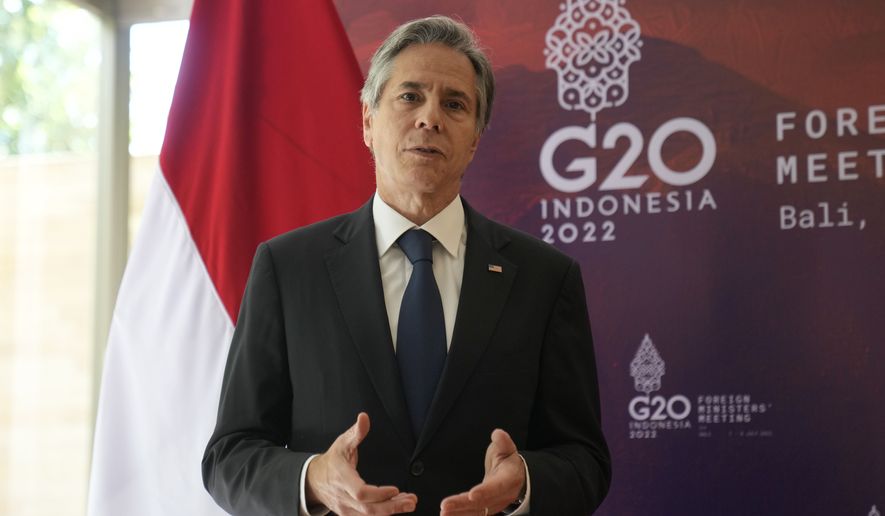A State Department grant of $500,000 to fund the promotion of the rights of atheists and other nonbelievers in the Near East and South-Central Asia has drawn fire from more than a dozen members of Congress who say the goal is to push atheism, which they assert is a component of “radical, progressive orthodoxy” worldwide.
The 2021 grants were designed to allow “members of minorities and marginalized groups — particularly atheists and nonbelievers” to network and campaign for their freedom alongside religious believers, but Rep. Jim Banks, Indiana Republican, and 14 other signers of a letter to President Biden and Secretary of State Antony Blinken say the funds could be used to promote atheism.
“It is one thing for the [State] Department to be tolerant and respectful of a wide range of belief systems, and to encourage governments to respect the religious freedom interests of their citizens,” Mr. Banks writes. “It is quite another for the United States government to work actively to empower atheists, humanists, non-practicing and non-affiliated in public decision-making.”
Because “atheism is an integral part of the belief system of Marxism and communism,” the letter says, Americans “rightly discern” the grants as an element of the Biden administration’s efforts “to promote radical, progressive orthodoxy abroad.”
The Republican lawmakers contend that the grant “prioritizes atheists and humanists above all other potential recipients” and violates the First Amendment’s establishment clause, which prohibits the government from enacting any law “respecting an establishment of religion.”
By designating atheists as a “unique religious group,” the letter states, the goal of creating “networks and advocacy groups” for nonbelievers “would never pass constitutional muster” if it were aimed at promoting Christianity in China, for example.
Moreover, Mr. Banks and his colleagues charge, there is a question of how such spending helps U.S. foreign policy interests.
“Were such programs known by the citizens of the target countries, we would expect that local populations, interest groups and governments would bristle at what any ‘objective observer’ would see as ‘covert’ funding from a foreign power designed to shatter local religious and cultural relationships,” the letter states.
A State Department spokesperson said in an email that the $500,000 grant falls under provisions of the 2016 Frank R. Wolf International Religious Freedom Act, which states that the persecution of atheists and other nontheists “is often widespread, systematic and heinous.”
The spokesperson said the programs “never promote specific religious philosophies or doctrines” but instead “promote the rights of all people to live free from abuse or discrimination.”
The lawmakers want the administration to specify who received the money, which programs were funded and in which countries the funds were spent. They also asked officials to explain “How does deconstructing America’s reputation as a country of faith into one that promotes the negation of it improve our standing in the world?” and “How does promoting atheism in parts of the world where religious persecution is widespread help those facing persecution?”
The letter asks the State Department to explain how “promoting atheism in Muslim countries” aids U.S. “values and interests.”
The State Department said it would not publicly name the grant recipients to “protect the ability of rights advocacy organizations to accomplish their objectives in highly sensitive international settings” but added that the agency would be “pleased” to discuss the matter with members of Congress.
With Mr. Banks, Republican Reps. Barry Moore of Alabama; Paul A. Gosar of Arizona; Doug Lamborn of Colorado; Daniel Webster of Florida; Lisa C. McClain and Tim Walberg of Michigan; Claudia Tenney of New York; Tim Burchett of Tennessee; Dan Crenshaw and Randy Weber of Texas; Jeff Duncan and Ralph Norman of South Carolina; Glenn Grothman of Wisconsin; and Alex Mooney of West Virginia signed the letter.
• Mark A. Kellner can be reached at mkellner@washingtontimes.com.




Please read our comment policy before commenting.